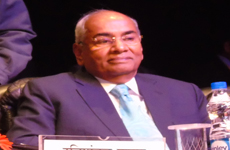
Dr. U S Awasthi (@drusawasthi) tweeted late evening on Wednesday “ #fertiliser industry served the country with the best of its ability unfortunately now actions of #GOI are making it unviable this is #SOS.”
Earlier in order to wake the govt up on the need of grappling with the realities of the fertilizer sector he wrote a piece in Business Line where he advocated the need for policy level initiatives.
Most of all he rues the leaving out of urea from NBS which has resulted into making the P&K fertilisers commercially viable but increased the difference in the price of the two grades of fertilisers
This price difference has not only lead to a surge in the demand of cheaper urea (which is even cheaper than salt!) but has also tilted the application in its favour which has lead to imbalance fertilisation, diversion to industrial use and even smuggling, he writes.
The only solution to this is the gradual and incremental escalation in the price of urea. Ideally, it should be brought at parity with the price of P&K fertilisers but there will be political and economic challenges. So, initially, it can be increased by 10 per cent followed by an incremental increase each year with an aim to freeing the prices completely.
Before freeing the price of urea, the government and producers should work towards a single price mechanism for production cost of urea. To aid this, the government can provide gas to these units at pooled prices and remove the restriction on the import of urea.
Lastly, the fertiliser subsidy should be directly given to farmers. This would help save a substantial chunk of subsidy by better targeting of beneficiary and will save producers from the delay in subsidy payments to them. This would require a synergy between the Jan Dhan Yojana, Aadhaar and the Kisan Credit Card and RuPay Card. It is very doable and the producers will be more than happy in making this a reality.